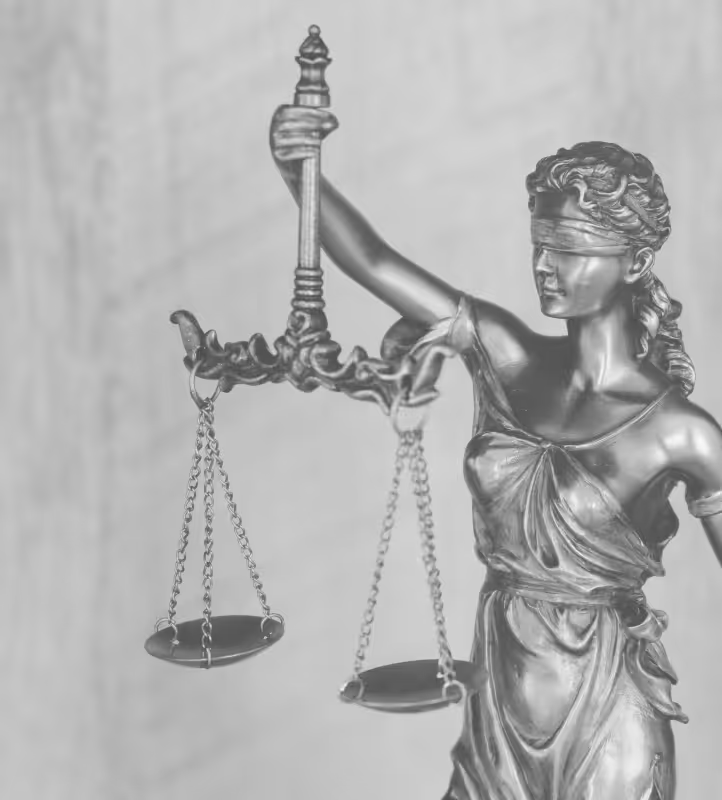Never had a valid driver's licence (never licenced in Australia)
.avif)
Charged With Driving Without a Licence in NSW
Being charged with driving without ever holding a valid licence is a serious matter under the Road Transport Act 2013 (NSW). This offence can lead to heavy fines, possible disqualification, and even imprisonment for repeat offences.
Detailed description:
- What it means – You are accused of driving on public roads in NSW without ever being issued a valid Australian licence.
- Why it matters – The law treats this seriously because driving without training or testing puts road safety at risk.
- Potential penalties – First offences may result in fines, while repeat offences can lead to higher penalties including disqualification and imprisonment.
At Brightstone Defence Criminal Lawyers, we have extensive experience defending clients charged with licence-related offences across NSW. We understand how to challenge the prosecution’s case, negotiate reduced penalties, and help protect your future.
What is Never had a valid Driver's Licence?
Driving without ever having held a valid driver’s licence is a criminal offence under Section 53 of the Road Transport Act 2013 (NSW). It applies to anyone caught driving on public roads who has never been licensed to drive in Australia.
This offence is treated seriously because holding a valid licence is fundamental to ensuring drivers have the necessary skills and knowledge to operate vehicles safely.
Elements the Prosecution Must Prove
To convict you of driving without ever having held a licence, the prosecution must prove beyond reasonable doubt that:
- You were driving a motor vehicle on a public road or road-related area.
- You have never been issued a valid driver’s licence in Australia at any time before the offence.
If these elements are not proven, the charge cannot stand.
Possible Defences
Common defence to this offence may include:
- Mistaken identity – You were not the person driving.
- You had a valid licence issued overseas and were unaware that you needed an Australian licence (though this can be complex).
- You were driving on private property where the offence may not apply.
- You were driving under necessity or emergency circumstances (though these are limited defence).
Potential Penalties
The court has discretion whether to disqualify for first offences but often does so for repeat offences.
Penalties may be increased if aggravating factors are present.

Legal Process
& Options
Driving without a licence is a serious offence with potential consequences including fines, disqualification, and even imprisonment for repeat offences. Early legal advice can significantly improve your chances of a favourable outcome.
Pleading
Not Guilty
Your case will proceed to a defended hearing. The prosecution must prove the offence beyond reasonable doubt. Your lawyer will:
- Review the evidence.
- Challenge the prosecution’s claims.
- Present any defence.
- Represent you at the hearing.
This option allows you to contest the charge, but the process may take longer and involve more legal steps.
Pleading
Guilty
Pleading guilty may show remorse and cooperation, which can lead to reduced penalties. The court may consider:
- Whether this is your first offence.
- Your personal circumstances and character.
- Any efforts made to rectify the situation (e.g., applying for a licence).
Your lawyer can assist in preparing submissions to support a more lenient sentence and help you understand the implications, such as fines or licence disqualification.
It means you are accused of driving a motor vehicle on a public road without ever being issued a valid driver’s licence in Australia.
If you have a valid overseas licence and meet certain conditions, you may not be charged. However, if you should have obtained an Australian licence and did not, you could be liable. It depends on your specific circumstances.
Penalties range from fines up to $3,300 and, for repeat offences, up to 6 months imprisonment. Licence disqualification may also be imposed, especially for subsequent offences.
The court has discretion, especially for first-time offenders, to dismiss the charge or decide not to record a conviction under Section 10 of the Crimes (Sentencing Procedure) Act 1999. This means no criminal record or licence disqualification.
Possible defence include mistaken identity, driving on private property, or lack of knowledge that a licence was required. Each case depends on its facts and evidence.
You should seek legal advice promptly. A lawyer can explain your options, help prepare your case, and negotiate with prosecutors to reduce penalties or dismiss the charge.
- Yes. A conviction and disqualification can delay your ability to obtain a licence and may affect your insurance and employment prospects.
It is a criminal offence under section 54 of the Road Transport Act 2013 (NSW) to drive a motor vehicle while your driver licence is:
- Suspended (temporarily withdrawn)
- Disqualified (by a court or authority from holding a licence)
- Cancelled (revoked and no longer valid)
- Yes, if convicted. A finding of guilt will usually result in a criminal conviction, which may affect employment, travel, and future court matters. In limited circumstances, you may receive a non-conviction order (e.g., a section 10 dismissal)
- Yes. If convicted, you will be disqualified from driving for a minimum period set by law. The court may reduce the disqualification to the minimum allowable, but cannot remove it entirely
You may have a defence if you can show that you genuinely did not know, and could not reasonably have known, that your licence was not valid. This is a factual defence and will depend on the evidence
The court will proceed to sentence you, considering your:
- Driving history
- Circumstances of the offence
- Level of cooperation and remorse
- Whether you’ve done a Traffic Offender Program
You may receive a reduced penalty for pleading guilty early
- The matter will go to a hearing, where the prosecution must prove the offence beyond reasonable doubt. If the court accepts your defence, the charge will be dismissed.
- Contact Brightstone Defence Criminal Lawyers for expert guidance and immediate support to protect your rights and explore the best defence strategy.
- A Criminal lawyer can help you by:
- Explaining your rights and the legal process.
- Assessing whether you have valid defence.
- Negotiating with prosecutors to reduce charges or penalties.
- Preparing your case for court and advocating on your behalf.
- Helping minimise the impact on your future, such as avoiding a criminal record or lengthy disqualification.
- Early legal advice can significantly improve your chances of a favourable outcome.
It means you are accused of driving a motor vehicle on a public road without ever being issued a valid driver’s licence in Australia.
If you have a valid overseas licence and meet certain conditions, you may not be charged. However, if you should have obtained an Australian licence and did not, you could be liable. It depends on your specific circumstances.
Penalties range from fines up to $3,300 and, for repeat offences, up to 6 months imprisonment. Licence disqualification may also be imposed, especially for subsequent offences.
The court has discretion, especially for first-time offenders, to dismiss the charge or decide not to record a conviction under Section 10 of the Crimes (Sentencing Procedure) Act 1999. This means no criminal record or licence disqualification.
Possible defence include mistaken identity, driving on private property, or lack of knowledge that a licence was required. Each case depends on its facts and evidence.
You should seek legal advice promptly. A lawyer can explain your options, help prepare your case, and negotiate with prosecutors to reduce penalties or dismiss the charge.
- Yes. A conviction and disqualification can delay your ability to obtain a licence and may affect your insurance and employment prospects.
- Contact Brightstone Defence Criminal Lawyers for expert guidance and immediate support to protect your rights and explore the best defence strategy.
- A Criminal lawyer can help you by:
- Explaining your rights and the legal process.
- Assessing whether you have valid defence.
- Negotiating with prosecutors to reduce charges or penalties.
- Preparing your case for court and advocating on your behalf.
- Helping minimise the impact on your future, such as avoiding a criminal record or lengthy disqualification.
- Early legal advice can significantly improve your chances of a favourable outcome.
SUCCESS CASES & ARTICLES
Brightstone Defence delivers focused criminal defence services year-round and has built a strong track record of successful outcomes.
Meet our lawyers
WORLD CLASS
REPRESENTATION
100+ 5 Star Reviews
Personalised legal strategies tailored to each case
Recognised leaders in criminal defence law
Free initial consultation and case evaluation
Proven success in high-stakes and complex cases
Get AN instant estimated Quote
and a free consultation session
Facing criminal charges? Our experienced criminal defence lawyers are here to help. Book your free consultation now to discuss your case and understand your options.







